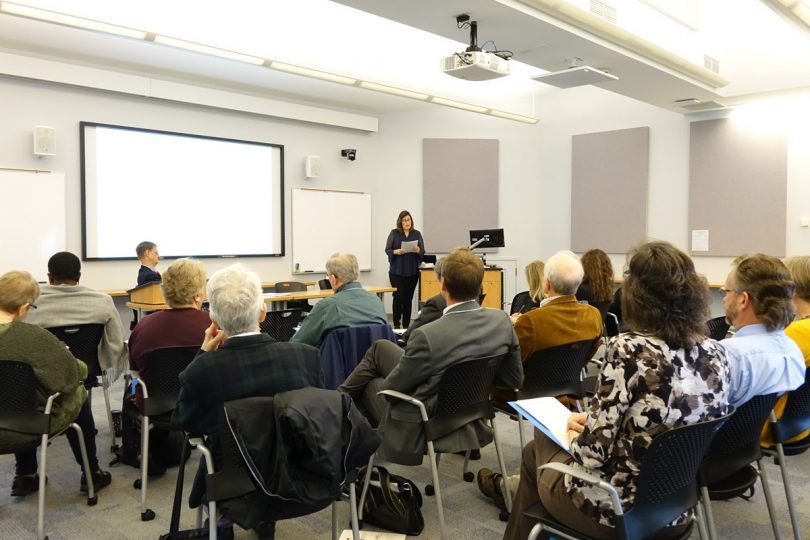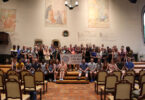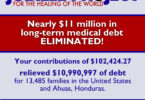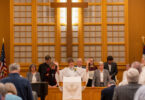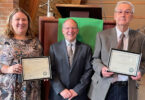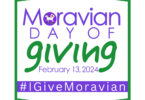The planning committee for the 7th Bethlehem Conference on Moravian History and Music invites you to join us April 20-24, 2021, from wherever you are. For over a decade, the Moravian Archives in Bethlehem, the Moravian Music Foundation, and Moravian College have planned these biennial conferences. The groups, working especially with the Music and History Departments of Moravian College, and the Center for Moravian Studies in Moravian Theological Seminary, have hosted conferences that brought scholars from Africa, the Caribbean, Europe, North and South America to Bethlehem for a few packed days of lectures and concerts. We had every intention of building on the successes of previous conferences when we first started planning for the 7th Conference, which was originally planned to have taken place last fall.
COVID, however, caused substantial changes to our plans. By early summer, the committee became aware that we could not count on our international participants being able to travel safely in time to hold the conference on its original dates. In response, we decided to move the conference into the spring of 2021, hoping that life would have returned to normal. As the COVID situation continued to unfold, we decided to make this an all virtual conference. While we are aware that this decision limits the fruitful and enjoyable informal interactions that participants have experienced at previous conferences, it also brought about many benefits.
Bethlehem Area Moravians has been an ongoing sponsor for these conferences. In the past they have given to help defray travel expenses. This year, however, travel costs need no longer prohibit anyone either to present at the conference or listen to its wonderful offerings. We are grateful that this year BAM is helping to fund the increased expenses for technology. Their support enables us to record much of the content, allowing people who have to miss panel sessions to watch a recording later. This solves a perennial problem of so many conferences (including previous iterations of this one) where participants have to make difficult decisions about which of two concurrent panels to attend.
As plans for the conference take shape, the planning committee is excited by the international slate of presenters who are willing to tackle this new format. We are even more excited that going virtual means that hopefully we will have many more attendees than we have had in the past. In order to accommodate a hopefully growing number of attendees, and to make it as pleasant experience as possible, the committee has changed not only the mode in which the conference will take place, but also the time frame as well. Hoping to avoid Zoom fatigue and taking the time differentials between Europe, Africa and the Americas into account, we will have fewer, shorter sessions every day, but will hold the conference over more days.
Registering for the conference will allow attendees to join these webinars and also to watch recordings of sessions they miss. The webinar format adds an additional layer of security that prevents Zoom bombing while still allowing participants to raise questions to the presenters during times of question and response.
The committee also took a leap of faith by offering this conference for free. Although we debated several possibilities for tiered fees or pay per event, we ultimately decided to offer to everyone, and ask that participants and attendees donate as they are able.
As the chair of this committee, I want to express my gratitude to all the members of the planning committee for their patience, insight, and good humor expressed throughout the process of planning so far. My gratitude also extends to our panelists and presenters for their flexibility in adapting to new times, new schedules, and new ways of sharing our research and ideas. Special thanks to Dr. Jon Sensbach, who will be delivering Moravian Theological Seminary’s Walter Vivian Moses Lecture in Moravian Studies and to Susan Ellis with the Moravian Historical Society for working with Dr. Jenna Gibbs in coordinating the annual lectures of the MHS.
The MTS Moses Lecture and the MHS Annual Lecture serve as the bookends for this year’s conference. Dr. Sensbach’s lecture: “When the Moravians Returned to Georgia: A Forgotten Mission During the American Revolution,” focusing on a brief and virtually unknown mission begun in 1775 to reach enslaved Africans near Savannah will be at 10 a.m., Tuesday, April 20. This will be followed by 15 panels of papers, lunch roundtables and discussions. A pre-recorded “Beethoven in Bethlehem” concert presented by the Moravian Music Foundation is scheduled Friday, April 23 at 1 p.m., along with the presentation of the David A. Schattschneider Award of Merit to M.O. and Martha Hartley. Dr. Gibbs’ lecture, “Conversion and Conflict: Christian Ignatius Latrobe Visits South Africa, 1807- 1816,” addressing race, rights and freedoms of indigenous Africans, begins at 1 p.m. on Saturday, April 24 ,and will conclude the weekend.
Registration for the conference begins on February 1. For more information and to register, please visit the conference website at: https://www.moravianconferences.org/
We hope to see you in cyberspace as we continue to learn about the rich heritage of Moravian history and music.
The Rev. Dr. Riddick Weber is the chair of the planning committee for this conference. Times in article are Eastern Time Zone.

